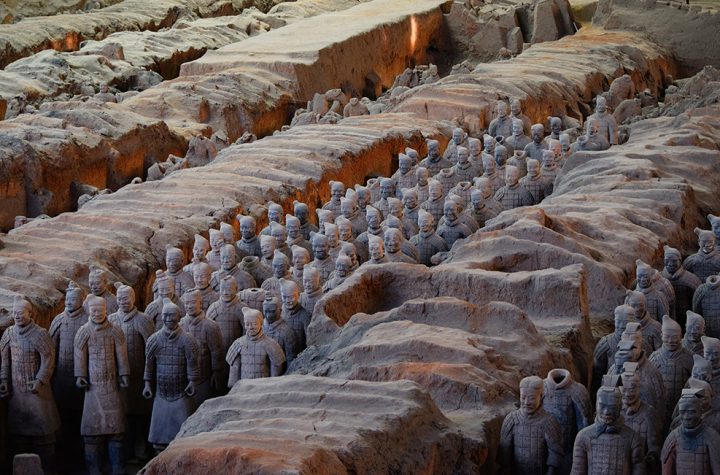
- Calls for free speech have ramped up online among Chinese citizens.
- The death of the doctor who was silenced for sounding the alarm on coronavirus has outraged the nation.
- A missing citizen journalist is the latest to add fuel to the growing resistance against government censorship.
The coronavirus epidemic has shown no signs of slowing over the past week, and many are starting to look more critically at Beijings handling of the crisis. More specifically, Chinese citizens are starting to question whether their governments crack-down on rumors has put their nation, and world, at risk.
Dr Lis Death Starts Free Speech Movement
It all started back in December when an ophthalmologist in Wuhan sent a message to a few of his physician friends warning them of seven confirmed cases of SARS. Later that doctor, Li Wenliang, followed up with those friends to say it wasnt SARS, but unspecified coronavirus.
If Dr. Lis calls had been taken seriously, coronavirus may not have spread so rapidly. Image: Dale De La Rey/AFP
In the days that followed, Li faced disciplinary action as government officials accused him of spreading rumors. He was later forced to sign a letter admitting that he was spreading untrue speech. Eight others in Wuhan were also under investigation for spreading rumors about this new coronavirus strain.
On Jan. 10, Li himself contracted coronavirus but Chinas President Xi Jinping had yet to inform the masses of the dangerous virus. When Jinping finally acknowledged the epidemic on Jan. 20, it was too late. The virus had already spread beyond control with the majority of China none the wiser.
Dr. Li has become a symbol of whats wrong with censorship in China |Source: Twitter
When Li died from complications due to coronavirus on Feb. 6, a wave of anger swept China. Beijing worked tirelessly to censor calls for free speech and criticism of the governments handling of the epidemic in the hours that followed. But the wave of public unrest was too large to contain. If Lis warning about the first seven cases had been heralded rather than stifled, coronavirus might not be the unmitigated disaster its become today.
More Citizens Speak Out
Chen Qiushi, a lawyer turned citizen journalist, traveled to Wuhan on Jan. 24 to see for himself what was happening. His one-man operation has been reporting everything from hospital constructions to burial centers around the city. Most of his viewers are Chinese citizens using a VPN to get around the governments censorship laws.
Chens disappearance adds fuel to the growing resentment with censorship in China. | Source: Twitter
On Thursday, the same day that Lis death sparked outrage among Chinese citizens, Chen went missing. According to CNN, his friends and family were told by police that hes been forced into quarantine. By all accounts, Chen was in good health before he disappeared.
Now Chinese citizens, already outraged by the treatment of Dr. Li and his death, have another martyr for their movement.
China is Losing Control
The government has been inundated by citizens speaking freely online through Weibo. On Friday, one of the top two trending hashtags on the social media platform was We want freedom of speech. Beijing has since deleted or restricted most of those posts a move that could prompt further unrest.
The governments handling of coronavirus has created resentment and hostility among the public. | Credit: Chinatopix via AP
In the wake of Lis death, Chens disappearance will fuel anger directed at government officials that could boil over in the weeks to come.
Its been more than a decade since the last pro-democracy demonstrations in China, but calls for greater transparency and freedom of speech could erupt into something similar as the coronavirus situation worsens.
Link to Hong Kong
In Hong Kong, coronavirus has spurred on protestors as many of the city-states residents worry about its open border with China. The virus has added a new dimension to activists calls for democracy though reluctance to gather in large groups due to the virus has cut down on organized protests.
Coronavirus adds another reason for Hong Kong protesters to continue pushing for democracy. | Source: ANTHONY WALLACE / AFP
While a full-scale resistance in China is unlikely, the coronavirus epidemic could be the straw that breaks the camels back in Hong Kong. Surgical mask shortages have reportedly caused prices to skyrocket. Radio Television Hong Kong reported that a box of masks could sell for as much as $257.
Mistrust Causes Resentment
In China, Hong Kong, and many neighboring Asian nations, censorship has created panic among residents who dont know what to believe. In an effort to cut down on fake news, many governments are restricting what can be said online about the virus. But that sentiment is exactly how Dr. Li was silenced when the virus first appeared. In that way, censorship can silence good information alongside rumors.
Censorship has created a dangerous environment where misinformation can further the spread of disease. | Image: GREG BAKER / AFP
Thats left hundreds of thousands of people wondering how bad the epidemic really is and what they can do to protect themselves. History tells us thats a dangerous way to deal with heath crises. Back in 2003 when SARS was ravaging China, rumors about a vinegar cure saw hoards of people travel to the Shanxi province to get it. The supposed cure was a hoax, but it helped the virus made its way across China.
Chens Disappearance a Turning Point
The days ahead will be crucial for Beijing as people continue to mourn Lis death and question the circumstances under which Chen was quarantined. Censorship is likely not enough to beat back the rising tide in China, especially if public dissent online continues. If more stories like Chens make their way into the news and the Chinese public continues to demand answers, a push for greater freedom could start to gain momentum.
Disclaimer: The opinions expressed in this article do not necessarily reflect the views of CCN.com.
This article was edited by Sam Bourgi.





More Stories
After a cluster of new COVID-19 cases among the White House staff and a campaign offical, the election night watch party in the White House has become another symbol of U.S. President Donald Trump’s cavalier attitude toward a virus that is ripping across the …
Rob Lucas says the SA economy is forecast to go backwards by 0.75pc in 2020-21, a better outcome than a national economy forecast to shrink 1.5pc.
Labor and crossbench senators want changes to JobMaker, arguing too many workers will be excluded from the hiring credit scheme.